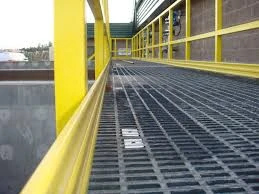
-
 Afrikaans
Afrikaans -
 Albanian
Albanian -
 Amharic
Amharic -
 Arabic
Arabic -
 Armenian
Armenian -
 Azerbaijani
Azerbaijani -
 Basque
Basque -
 Belarusian
Belarusian -
 Bengali
Bengali -
 Bosnian
Bosnian -
 Bulgarian
Bulgarian -
 Catalan
Catalan -
 Cebuano
Cebuano -
 China
China -
 China (Taiwan)
China (Taiwan) -
 Corsican
Corsican -
 Croatian
Croatian -
 Czech
Czech -
 Danish
Danish -
 Dutch
Dutch -
 English
English -
 Esperanto
Esperanto -
 Estonian
Estonian -
 Finnish
Finnish -
 French
French -
 Frisian
Frisian -
 Galician
Galician -
 Georgian
Georgian -
 German
German -
 Greek
Greek -
 Gujarati
Gujarati -
 Haitian Creole
Haitian Creole -
 hausa
hausa -
 hawaiian
hawaiian -
 Hebrew
Hebrew -
 Hindi
Hindi -
 Miao
Miao -
 Hungarian
Hungarian -
 Icelandic
Icelandic -
 igbo
igbo -
 Indonesian
Indonesian -
 irish
irish -
 Italian
Italian -
 Japanese
Japanese -
 Javanese
Javanese -
 Kannada
Kannada -
 kazakh
kazakh -
 Khmer
Khmer -
 Rwandese
Rwandese -
 Korean
Korean -
 Kurdish
Kurdish -
 Kyrgyz
Kyrgyz -
 Lao
Lao -
 Latin
Latin -
 Latvian
Latvian -
 Lithuanian
Lithuanian -
 Luxembourgish
Luxembourgish -
 Macedonian
Macedonian -
 Malgashi
Malgashi -
 Malay
Malay -
 Malayalam
Malayalam -
 Maltese
Maltese -
 Maori
Maori -
 Marathi
Marathi -
 Mongolian
Mongolian -
 Myanmar
Myanmar -
 Nepali
Nepali -
 Norwegian
Norwegian -
 Norwegian
Norwegian -
 Occitan
Occitan -
 Pashto
Pashto -
 Persian
Persian -
 Polish
Polish -
 Portuguese
Portuguese -
 Punjabi
Punjabi -
 Romanian
Romanian -
 Russian
Russian -
 Samoan
Samoan -
 Scottish Gaelic
Scottish Gaelic -
 Serbian
Serbian -
 Sesotho
Sesotho -
 Shona
Shona -
 Sindhi
Sindhi -
 Sinhala
Sinhala -
 Slovak
Slovak -
 Slovenian
Slovenian -
 Somali
Somali -
 Spanish
Spanish -
 Sundanese
Sundanese -
 Swahili
Swahili -
 Swedish
Swedish -
 Tagalog
Tagalog -
 Tajik
Tajik -
 Tamil
Tamil -
 Tatar
Tatar -
 Telugu
Telugu -
 Thai
Thai -
 Turkish
Turkish -
 Turkmen
Turkmen -
 Ukrainian
Ukrainian -
 Urdu
Urdu -
 Uighur
Uighur -
 Uzbek
Uzbek -
 Vietnamese
Vietnamese -
 Welsh
Welsh -
 Bantu
Bantu -
 Yiddish
Yiddish -
 Yoruba
Yoruba -
 Zulu
Zulu
fiberglass food grade equipment
The Importance of Fiberglass Food Grade Equipment in Modern Food Production
In the ever-evolving landscape of food production, maintaining high standards of hygiene and safety has become a critical priority for manufacturers. One of the materials that have gained prominence in this field is fiberglass, particularly in the form of fiberglass food grade equipment. This material is renowned for its durability, versatility, and excellent performance in various applications related to food processing and storage.
Fiberglass is a composite material made from fine glass fibers and resin, making it both lightweight and incredibly strong. When used in food grade equipment, it is engineered to comply with stringent safety regulations and standards set by food safety authorities. This ensures that the equipment does not leach harmful substances into food products, making it a safe choice for various food processing environments.
One of the key benefits of fiberglass food grade equipment is its resistance to corrosion and chemical damage. Traditional materials like metal can rust or corrode over time, especially when exposed to moisture or harsh cleaning agents. In contrast, fiberglass is impervious to such environmental factors, ensuring a longer lifespan for equipment and reduced maintenance costs. This longevity is not only economically favorable but also minimizes downtime, allowing food production processes to run more smoothly.
fiberglass food grade equipment

Another significant advantage of fiberglass is its non-porous nature. Unlike materials that can harbor bacteria and other pathogens, fiberglass surfaces are easy to clean and sanitize. This feature is crucial in food processing where hygiene is paramount. With stringent hygiene protocols in place, manufacturers can use fiberglass equipment to maintain sanitary conditions crucial for safe food production. This helps in reducing the risk of foodborne illnesses, which can damage a brand's reputation and lead to legal issues.
Moreover, fiberglass food grade equipment can be customized to fit the specific needs of various operations. From storage tanks and conveyor belts to mixing vessels and work surfaces, fiberglass can be molded into a variety of shapes and sizes. This adaptability allows manufacturers to create equipment that optimally fits their production processes, enhancing efficiency. Furthermore, the lightweight nature of fiberglass equipment facilitates easier handling and installation, making it a practical choice for manufacturers of all sizes.
Environmental considerations are also becoming increasingly important in the food industry. Fiberglass can be produced with a lower environmental impact compared to many traditional materials. Additionally, its durability means that replacements are needed less frequently, reducing waste and the demand for new raw materials. Manufacturers committed to sustainability can benefit from integrating fiberglass food grade equipment into their operations, aligning with eco-friendly practices while still ensuring safety and efficiency.
In conclusion, fiberglass food grade equipment emerges as a vital component in modern food production. Its combination of safety, durability, and ease of maintenance makes it an attractive choice for manufacturers seeking to enhance their operational efficiency without compromising on hygiene or safety standards. As the food industry continues to grow and evolve, the role of innovative materials like fiberglass will undoubtedly play a crucial part in shaping the future of food processing and storage. Embracing this technology not only supports the production of safe and high-quality food items but also promotes sustainable practices that benefit both businesses and consumers alike.









